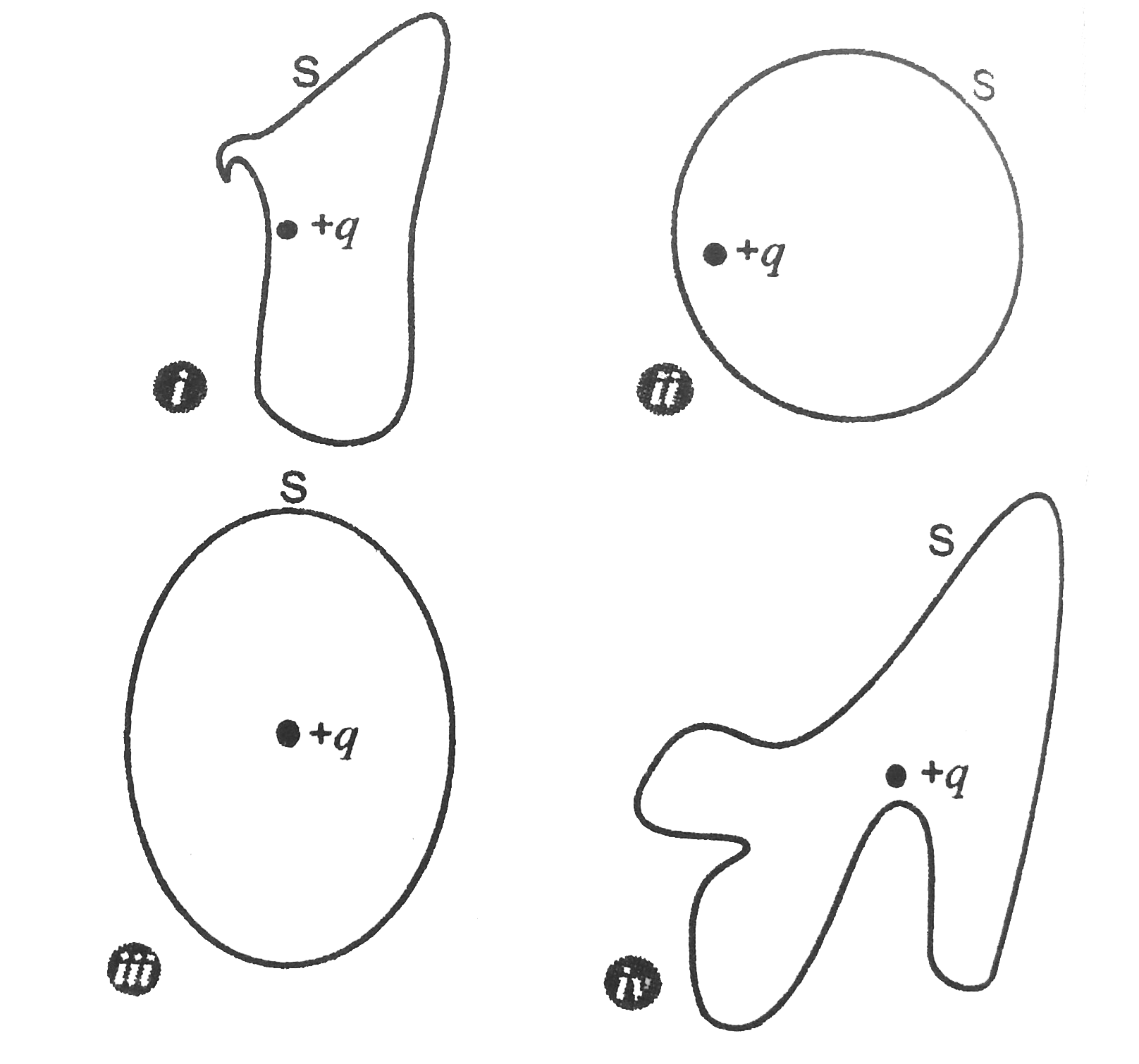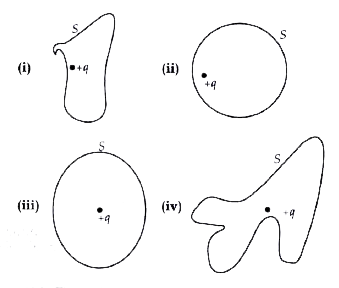An arbitrary surface encloses a dipole. What is the electric flux through this surface ?
We know that an electric dipole is a system of two equal and opposite charges placed at a certain distance, which makes the net charge of the dipole zero. Enclosing an electric dipole means net enclosed charge is zero. Therefore, according to Gauss.s law (ϕ=qε0) , the electric flux linked with the given surface will also be zero.
Topper's Solved these Questions
- BOOK - MODERN PUBLICATIONCHAPTER - ELECTRIC CHARGES AND FIELDS EXERCISE - Higher Order Thinking Skills & Advanced Level (Questions With Answers)5videos
ELECTRIC CHARGES AND FIELDS
- BOOK - MODERN PUBLICATIONCHAPTER - ELECTRIC CHARGES AND FIELDS EXERCISE - Revision Exercises (Very short)55videos
ELECTRIC CHARGES AND FIELDS
- BOOK - MODERN PUBLICATIONCHAPTER - ELECTRIC CHARGES AND FIELDS EXERCISE - Ncert File (Textbook Exercise)34videos
ELECTRIC CHARGES AND FIELDS
- BOOK - MODERN PUBLICATIONCHAPTER - DUAL NATURE OF RADIATION AND MATTER EXERCISE - CHAPTER PRACTICE TEST15videos
DUAL NATURE OF RADIATION AND MATTER
- BOOK - MODERN PUBLICATIONCHAPTER - ELECTROMAGNETIC INDUCTIONEXERCISE - CHAPTER PRACTICE TEST FOR BOARD EXAMINATION14videos
ELECTROMAGNETIC INDUCTION
Similar Questions
Knowledge Check
- Question 1 - Select One
The electric flux through the surface
 Ain fig. (iv) is the largestBin fig. (iii) is the leastCin fig. (ii) is same as fig.(iii) but is smaller than fig.(iv)DIs the same for all the figures.
Ain fig. (iv) is the largestBin fig. (iii) is the leastCin fig. (ii) is same as fig.(iii) but is smaller than fig.(iv)DIs the same for all the figures. - Question 2 - Select One
The electric flux through the surface
 Ain fig, (iv) is the largestBin fig, (iii) is the leastCin fig (ii) is same as a fig (iii) but is smaller than that in Fig (iv).Dis the same for all the figures.
Ain fig, (iv) is the largestBin fig, (iii) is the leastCin fig (ii) is same as a fig (iii) but is smaller than that in Fig (iv).Dis the same for all the figures. - Question 3 - Select One
What is the electric flux linked with closed surface?
 A1011N−m2/CB1012N−m2/CC1010N−m2/CD8.86×1013N−m2/C
A1011N−m2/CB1012N−m2/CC1010N−m2/CD8.86×1013N−m2/C
A point charge of 2.0μC is at the centre of a cubic Gaussian surface 9.0 cm on edge. What is the net electric flux through the surface?
View SolutionA closed surface encloses a net charge of −3.60μC. What is the net electric flux through the surface?
(b) The electric flux through a closed surface is found to be 780N−m2/C. What quantity of charge is enclosed by the surface?
(c) The closed surface in part (b) is a cube with sides of length 2.50 cm. From the information given in part (b), is it possible to tell where within the cube the charge is located? Explain.View SolutionA cubical guassian surface encloses 24 C of charge. The electric flux through each surface of the cube is
View SolutionA point charge of 1.77 μC is at the centre of a cubical gaussian surface having each side 50 cm. what is the net electric flux through the surface?
View SolutionA surface enclosed an electric dipole, the flux through the surface is -
View Solution


